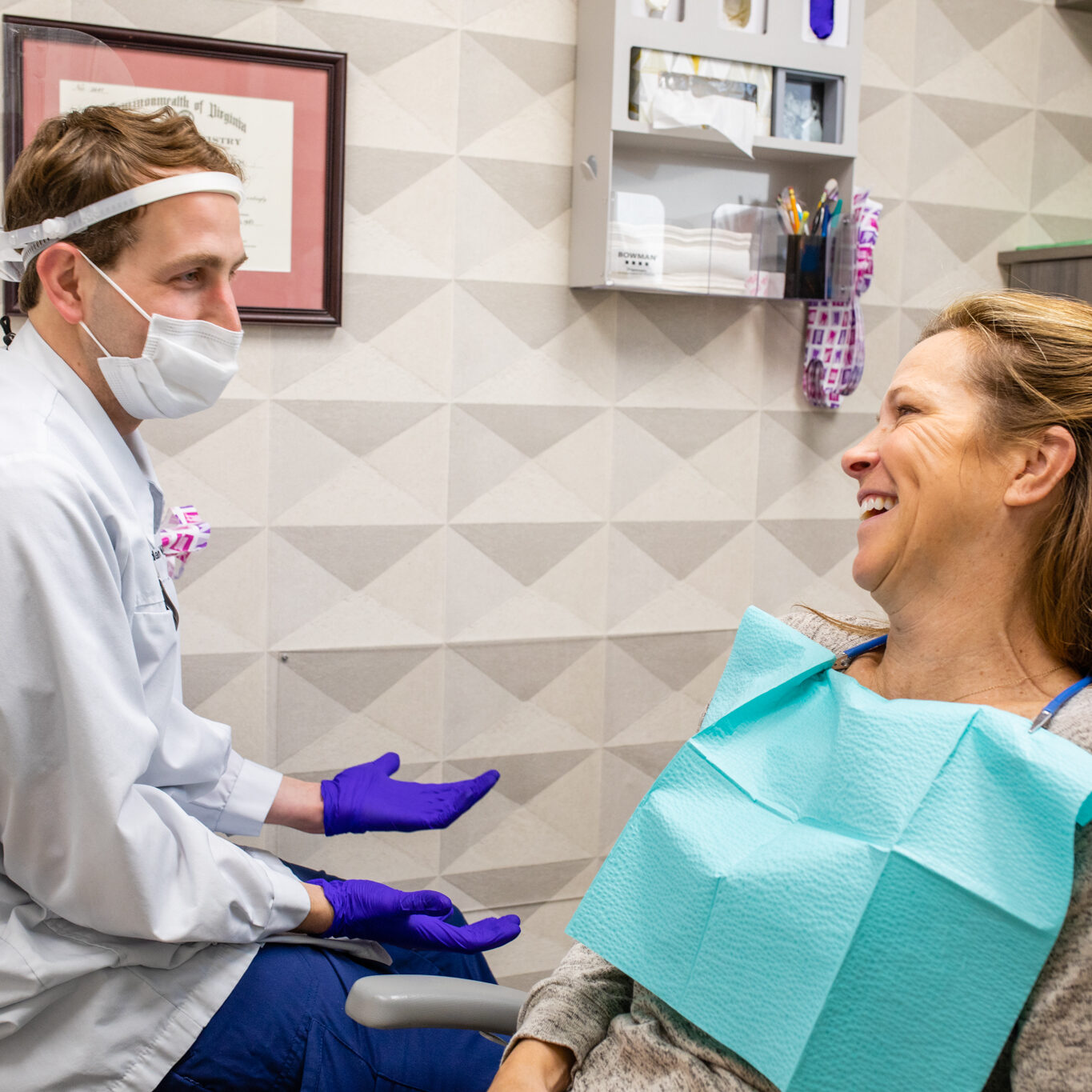Your doctor may recommend an extraction for several reasons. In some cases, decay or fracture results in the tooth being non-restorable. Other times, such as when a tooth is positioned unfavorably (3rd molar or wisdom tooth), extraction will help protect the health of adjacent teeth. Other times the orthodontist recommends an extraction to make room for the perfect alignment of a smile.
TOOTH EXTRACTIONS
Business
REVIEWS
TECHNOLOGY
Roanoke Dental Extractions
Why are tooth extractions necessary?
Are there any alternatives to tooth extraction?
Alternatives to an extraction may exist. Even if a tooth is causing pain, it can sometimes be fixed by doing a filling, crown, or root canal. Dr. Irby and Dr. Williams will carefully review options for your tooth, and recommend a solution that works for your needs and desires.
What is special about our practice?
Dr. Irby and Dr. Williams are committed to offering you the best dental experience possible. Your health and comfort are our top priority. If a tooth extraction is needed, first your dentist will review your health and medication history to ensure your tooth can be removed safely. Dr. Irby and Dr. Williams are experts at providing local anesthetic in a painless manor. We know that “getting numb” is often a dreaded part of the dental visit, so we use the latest techniques to provide gentle anesthesia. Our patients often comment that they “didn’t even feel” the shot. We make every effort to tell you what to expect, how to take care of yourself after the extraction and to see that you are comfortable both during and after the procedure.
What next?
Once a tooth has been removed, you may be interested in tooth replacement. Dr. Irby and Dr. Williams will offer several options. Commonly, the patient chooses between a dental implant, a bridge, or a partial denture.
More information from the American Dental Association
Photo Gallery
Get in Touch!
Frequently Asked Questions
How long does it take to recover from a tooth extraction?
Some tooth extractions cause little or no post op discomfort. Others may cause soreness for up to three weeks. Molar teeth extractions such as wisdom teeth are more likely to require a longer recovery period.
Do’s and don'ts after tooth extraction?
After tooth extraction it is important to bite on gauze for 20 minutes to 1 hour. This allows a stable healing clot to form in the tooth socket. A gentle warm salt water rinse may be recommended after eating. Continue to brush and floss your teeth, but be more gentle near the tooth extraction site. Do not use a straw, do vigorous swishing or spitting, or smoke.
How painful is a tooth extraction?
Tooth extractions are often painless using local anesthetic. Infected teeth due to an acute abscess are more difficult to numb using local anesthetic. If this is the case, your dentist may recommend using an antibiotic for a few days prior to the tooth extraction.
What are the side effects of removing a tooth?
After a tooth is removed, you may experience difficulty chewing food. Teeth may shift causing the bite to be off-balance. Ask your dentist which tooth replacement options are recommended.









